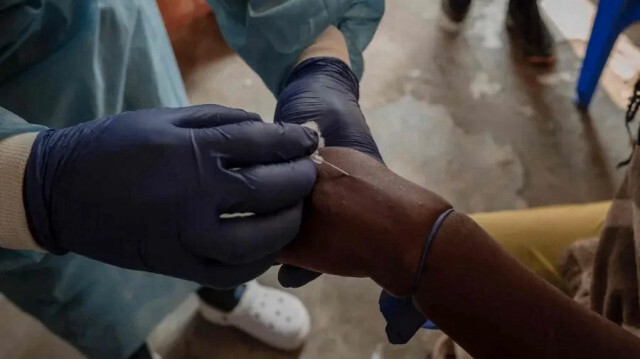
Suspected cases surge past 50,000 on continent, according to latest data
The African continent has seen an increase of mpox cases of 545% in 2024, compared to last year, according to data released Thursday by the Africa Centres for Disease Control and Prevention (Africa CDC).
This year, 50,840 suspected cases have been recorded in 19 African countries and 1,083 deaths, the figures showed.
The Central African region, which is the hardest hit, accounts for 85.8% of all cases and 99.4% of fatalities recorded.
Jean Kaseya, the director general of Africa CDC decried the low disbursement of pledges made by partners toward mpox response.
“The figures that we have today of disbursement is not matching even 20% of the pledges that we got,” he said at a virtual news conference from Ethiopia.
Africa's health partners and countries have pledged more than $1 billion toward Africa's response to mpox, according to Africa CDC.
The public health body said, meanwhile, that 899, 000 vaccine doses from donors have been allocated to nine countries in the region that are most hit by the current surge.
The allocation to the nine countries -- Central African Republic, Ivory Coast, Democratic Republic of Congo, Kenya, Liberia, Nigeria, Rwanda, South Africa and Uganda -- mark a significant step toward a coordinated and targeted deployment of vaccines to stop outbreaks, it said in a statement.
The largest number of doses–85% of the allocation will go to the Democratic Republic of the Congo as the most affected country.
The World Health Organization declared mpox a global public health emergency in August for the second time in two years, following the spread of a new variant of the viral infection from Congo to neighboring countries.
Mpox is a viral disease, formerly called monkeypox before the WHO changed its name in 2022 because of complaints it was racist and stigmatizing.
The zoonotic disease can be transmitted to humans through close physical contact with an infectious person or small wild animal, or via contaminated materials.
Common symptoms include rashes or lesions, as well as a flu-like fever, head and muscle aches, back pain, general weakness and swollen lymph nodes.

